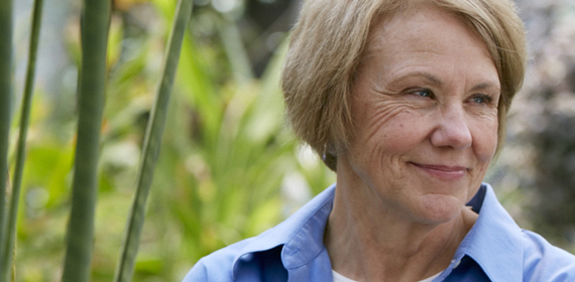
On Nov. 8, Secretary of State Hillary Rodham Clinton announced the appointment of three new science envoys, including Barbara A. Schaal, PhD, the Mary-Dell Chilton Distinguished Professor of Biology in Arts & Sciences at Washington University in St. Louis. Schaal becomes WUSTL’s next dean of the Faculty of Arts & Sciences in January.
The other two envoys are: Bernard Amadei, PhD, who holds the Mortenson Endowed Chair in Global Engineering and is professor of civil engineering at the University of Colorado at Boulder; and Susan Hockfield, PhD, who served recently as president of the Massachusetts Institute of Technology where she remains on the neuroscience faculty.
“These preeminent scientists,” the State Department release said, “will seek to deepen existing ties, foster new relationships with foreign counterparts and discuss potential areas of collaboration that will help address global challenges and realize shared goals.
“The science envoys travel in their capacity as private citizens and advise the White House, the U.S. Department of State and the U.S. scientific community about the insights they gain from their travels and interactions.”
The envoys named this year are the third cohort of science envoys since the program’s inception in 2009. The U.S. Science Envoy program is part of President Obama’s “New Beginning” initiative with Muslim communities launched in a June 4, 2009, speech in Cairo, Egypt.
He pledged that the United States would “appoint new science envoys to collaborate on programs that develop new sources of energy, create green jobs, digitize records, clean water and grow new crops.”
Although the original intent was to bolster science and technology collaboration with Muslim communities, the program has since expanded beyond the Muslim world, Schaal says.
“This program builds on what has been occurring less formally among individuals around the globe,” Schaal says. “Scientists have always belonged to a kind of international fellowship, based on collaborations grounded in common interests and values that cut across national lines.”
This international freemasonry, she says, is particularly valuable today when so many of the problems science is being asked to tackle — such as biodiversity loss, food and water shortages and global warming — are global rather than national in scope.
Schaal hopes to help knit together the international fabric of science —beginning friendships and forging collaborations with each visit.
Schaal earned a PhD in population biology from Yale University in 1974. She joined Washington University in 1980 as associate professor in biology; she became a full professor in 1986. She is recognized for her work in evolutionary biology, particularly for studies that use DNA sequences to understand evolutionary biology.
She holds the distinction of being the first woman elected to the vice presidency of the National Academy of Sciences and is a member of the President’s Council of Advisors on Science and Technology.
Amadei’s main research and teaching interests have focused on rock mechanics and engineering geology. He is the founding president of Engineers Without Borders and is an elected member of the U.S. National Academy of Engineering.
In addition to her appointment at MIT, Hockfield serves as the Marie Curie Visiting Professor at Harvard University’s Kennedy School. She has focused her research on brain development and a specific form of brain cancer and has been elected to the American Academy of Arts and Sciences.